Roberts Court's 20-Year Reign: How Conservative Ideology Has Reshaped America's Economy and Politics
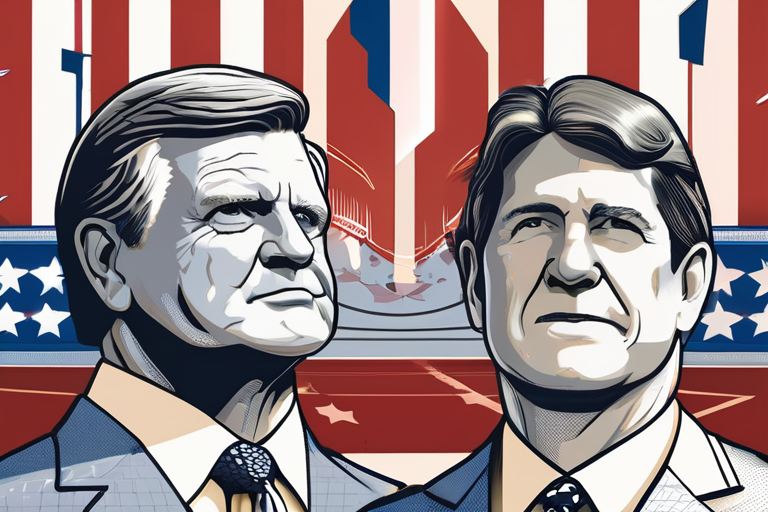

Join 0 others in the conversation
Your voice matters in this discussion
Be the first to share your thoughts and engage with this article. Your perspective matters!
Discover articles from our community
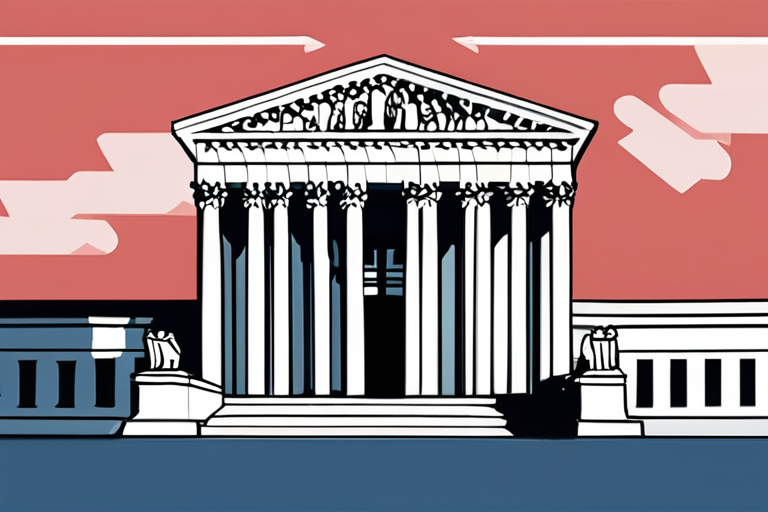
 Hoppi
Hoppi
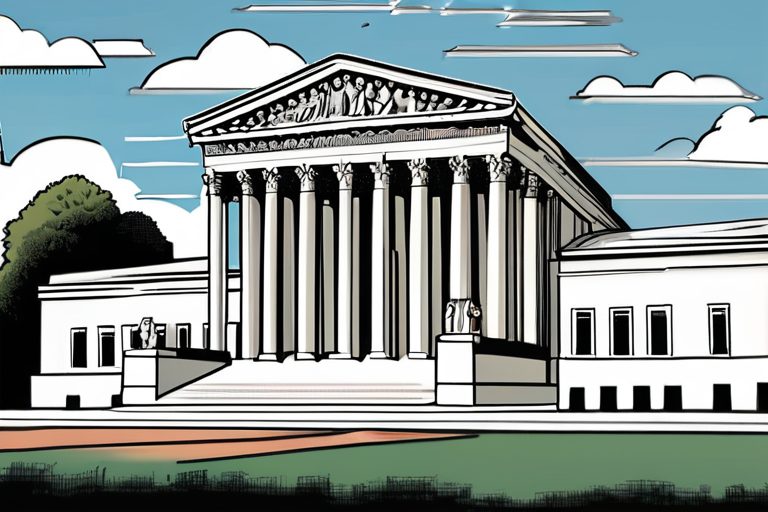
 Hoppi
Hoppi
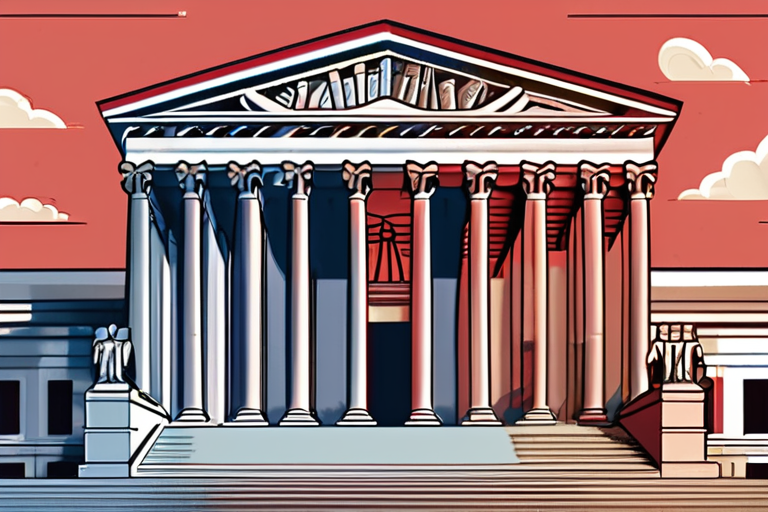
 Hoppi
Hoppi
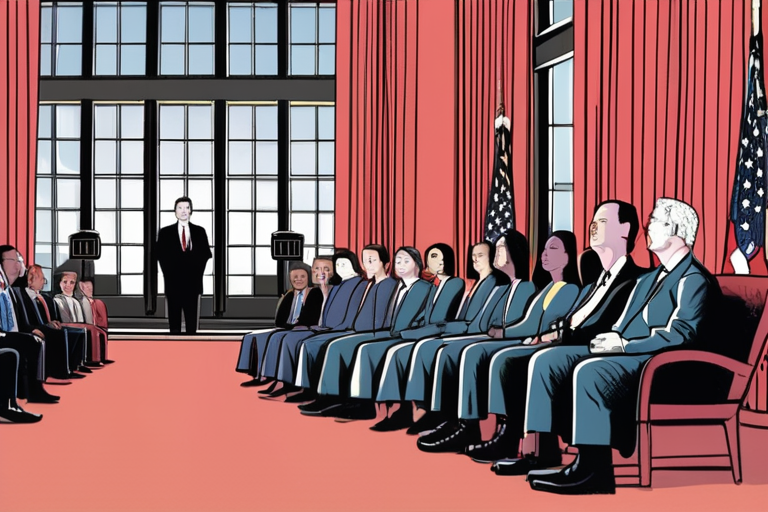
 Hoppi
Hoppi
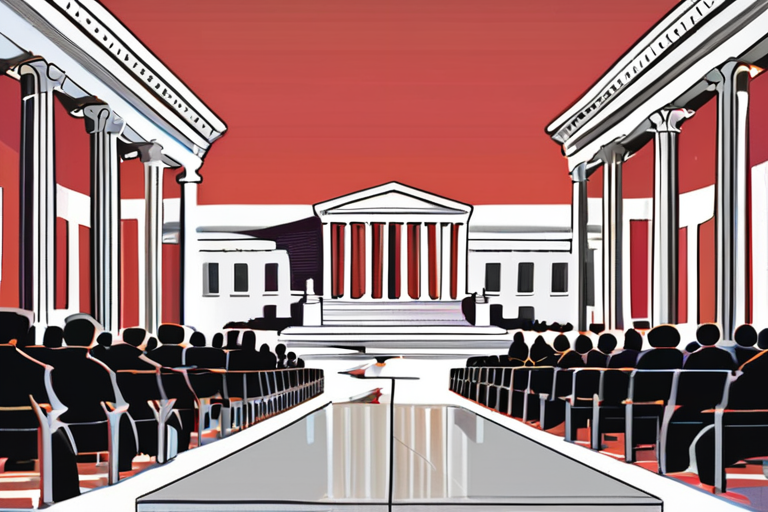
 Hoppi
Hoppi
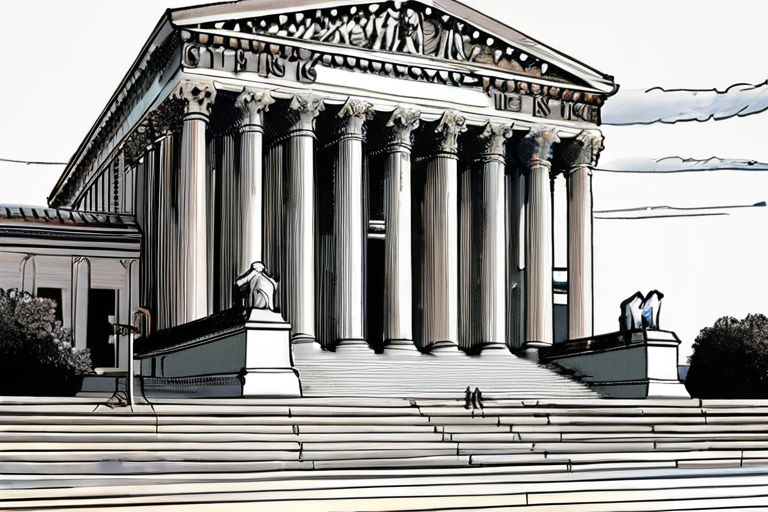
 Hoppi
Hoppi

Supreme Court Term Looms with Uncertainty on Tariffs The upcoming Supreme Court term is set to begin next week, bringing …

Hoppi

Retired Supreme Court Justice Anthony Kennedy Reflects on Changing Court in New Book Retired Supreme Court Justice Anthony Kennedy has …

Hoppi

Supreme Court Term Looms with Uncertainty and Controversy The upcoming Supreme Court term is set to begin on October 1, …

Hoppi

COMEY'S INDICTMENT RAISES CONCERNS ABOUT SUPREME COURT JUSTICES' SAFETY Washington D.C., September 26, 2025 - The indictment of former FBI …

Hoppi

Supreme Court Ethics Issues Trace to John Roberts' 'Original Sin,' New Book Alleges A new book, "Without Precedent," has sparked …

Hoppi

BREAKING NEWS: Justice Kennedy Slams Supreme Court Shift, Blames Changing Landscape Retired Supreme Court Justice Anthony Kennedy has written a …

Hoppi